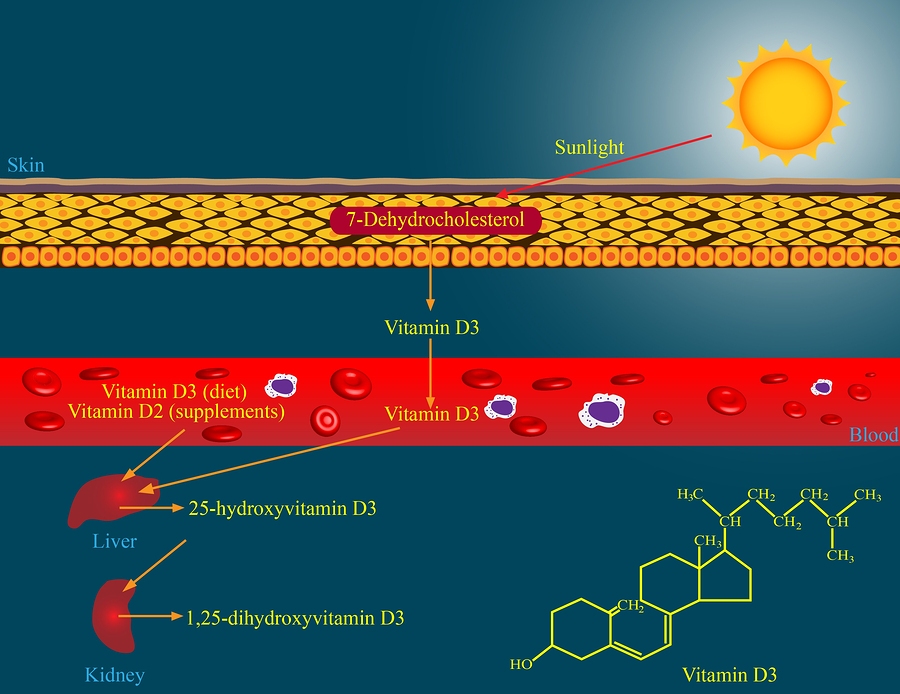New Study Shows Vitamin D ‘Heals Damaged Hearts’
A new study out of the UK suggests that Vitamin D supplements may help those with diseased hearts. The BBC reports that in a trial of 163 heart failure patients, supplements of vitamin -which is made in the skin when it’s exposed to sunlight- improved their hearts’ ability to pump blood around the body.
As many of you know, my better half has been promoting the healthy and responsible use of the sun- to produce Vitamin D- for a long time, although it is also found in oily fish, eggs and is added to some foods like breakfast cereals. It is known to be vital for healthy bones and teeth and when the body is deficient, it can cause cognitive impairment in older adults, severe asthma in children, and cancer. As a preventative it can help with type 1 and type 2 diabetes, hypertension, glucose intolerance, and multiple sclerosis.
The average age of people in the study was 70 and, like many people that age, they all had low levels of vitamin D. The participants were given either a 100 microgram vitamin D tablet or a sugar pill placebo each day for a year. Researchers measured the impact on heart failure, a condition in which the heart becomes too weak to pump blood properly, and used the ejection fraction- the amount of blood pumped out of the chambers of the heart with each beat- as the key measurement.
While the numbers in a a healthy adult are between 60% and 70%, in the heart failure patients, only a quarter of their blood was being successfully pumped out. However, of those taking vitamin D, the ejection fraction increased from 26% to 34%. The participants hearts also became smaller, which suggested they were becoming more powerful and efficient.
From the BBC article:
“‘Dr Witte told the BBC News website: ‘It’s quite a big deal, that’s as big as you’d expect from other more expensive treatments that we use, it’s a stunning effect. It’s as cheap as chips, has no side effects and a stunning improvement on people already on optimal medical therapy, it is the first time anyone has shown something like this in the last 15 years.'”
While this is good news, Dr. Witte doesn’t think that high-dose vitamin D should be prescribed just yet (in the UK those over 65 are advised to take 10 micrograms of the vitamin a day), telling the BBC, “We’re a little bit off that yet, not because I don’t believe it, but data have shown improvements in heart function, they may show improvements in symptoms and we now need a large study.”
Source: BBC












